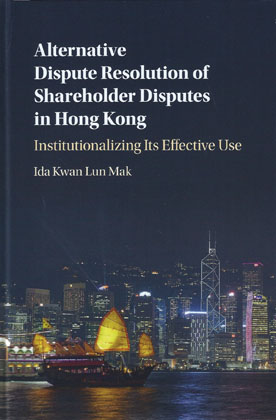We are now closed for the Christmas and New Year period, returning on Monday 5th January 2026. Orders placed during this time will be processed upon our return on 5th January.

The landscape of shareholder dispute resolution in Hong Kong has changed vastly since the launch of the Civil Justice Reform in 2009. Key initiatives - the voluntary court-connected scheme and reform of the statutory unfair prejudice provisions - were employed to promote the greater use of alternative dispute resolution (ADR) in shareholder disputes.
While the Hong Kong government and judiciary introduced such schemes to prove the legitimacy of extra-judicial over court-based litigation processes, their success is still uncertain. In this book, socio-legal theory and sociological institutionalism are used to develop a theoretical framework for analyzing the key stages of institutionalization.
The author analyzes how procedural innovations could acquire legitimacy through different types of legal and non-legal inducement mechanisms within the institutionalization process. Recommendations on codifying and innovating ADR policy in Hong Kong shareholder disputes made with comparison to similar policies in the United Kingdom, South Africa and New Zealand.